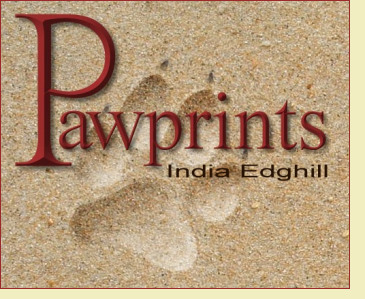 She had thought the day he died unbearable, the pain she endured the worst she could ever
know. But the day that followed surpassed it, as the men who had followed him slunk by ones and
twos from the city, hoping to escape notice. By the morning of the third day, only some of the
women remained. His mother. His sister.
She had thought the day he died unbearable, the pain she endured the worst she could ever
know. But the day that followed surpassed it, as the men who had followed him slunk by ones and
twos from the city, hoping to escape notice. By the morning of the third day, only some of the
women remained. His mother. His sister.
And me.
By that quiet morning, she could no longer bear the silence in her heart. Softly, so as not to waken the others, she rose before dawn and gathered up spices; myrrh and nard. She set them in an alabaster jar, and slid her veil over her head, and went out into the silver light before dawn. Jerusalem's streets lay silent; even early risers seemed to have slept longer today than they should. She moved swiftly through the deserted streets, passed out through the Western Gate. And there she encountered the first living thing she had laid eyes upon since she closed the door of the safe house behind her.
A dog.
It was a small brown creature, thin and dirty as all dogs were. It lay beside the road that led from the gate down the hill, its muzzle resting upon its front paws. She drew her skirt close, to run no risk of brushing against the creature; dogs were unclean beasts, feral and dangerous. On any other morning, she would have slipped back through the Gate, waited until the dog moved away. But today she would not be stopped by even Tiberius Caesar himself, let alone a dog. She drew a breath and said, "I am going to walk past you, dog. Do not trouble me and I will not trouble you." The dog lifted its head at her first words, flinched as she moved cautiously past it. "There," she said once she had half-a-dozen strides between her and the dog. "You see? Peace between us."
At the words, the dog rose and took a step towards her; its tail moved from side to side. Another step; alarm rushed through her. She must stop the animal; she had nothing to throw at it,
save the jar of spices -- then she remembered the crust she had caught up as she hurried from the house.
She pulled the piece of dry bread from her girdle. "Here, dog." She made her voice soft, as if she spoke to an infant. "Food." She tossed the crust toward the dog; the bread fell into the road between them.
As the dog lowered its head and edged forward to the crust of bread, she turned away and began to walk on. The sun was rising now, the light shifting from silver to gold. His tomb lay at the base of the hillside; a tomb given by a friend to house his body through all eternity. A long walk, and a hard one, and nothing at the end but a stone. Yet I bring him spices. She did not know why; she knew only that this was a task she must perform.
The walk proved even less pleasant than she had feared, for she paid dearly for bribing the dog rather than seeking out stones to drive the animal away. The small unclean beast persisted in following her, even when she turned and hissed at it to leave her alone.
"Leave me. Do not follow after me." And she raised her hand as if she would throw a stone; the dog shied away and she turned again and walked on. But when she glanced back, the dog still shadowed her footsteps. When she stopped again and stared at it, the dog flattened its ears and whined softly; its tail waved slowly back and forth.
"Turn away from me," she begged the dog, but this time she did not raise her hand to threaten. For a moment they stared at each other, woman and dog, and then she sighed, and once more walked steadily on. She had an important task to perform, and perform it she would, unclean beast or no. When she glanced back, she saw the small brown dog padding steadily after her, its paws raising small puffs of dust that hung in the morning air like golden mist.
The area about the tomb was quiet; the Roman soldiers who had stood watch through the first long nights were gone. The man they had feared lay dead now, the crowds that had cried for him, and against, had vanished, returned to being merely denizens of Jerusalem. Romans hated to waste so much as a coin or a breath. They would not squander soldiers to guard a dead man in his tomb.
As she came closer, she at first thought her eyes deceived her, morning light could be
tricky, could dazzle and confuse the unwary. Then she saw that she was wrong; no illusion deceived her. The stone that had closed the tomb was no longer there. The huge circle of pale rock lay upon the ground a dozen paces away.
Her fingers closed tighter about the alabaster jar; wary, she edged forward until she could gaze into the chamber carved into the rock of the hillside. It was empty. He no longer lay there. I have carried these spices all this way for nothing, was her first thought. She looked down at the jar cradled in her hands. He does not need spices now. He needs nothing now. Nothing that I can give.
Head bent, she turned slowly away; tears blurred her vision, and only the brown dog's swift dance sideways kept her hesitant feet from stumbling over the little beast. Pain too deep for easy mourning numbed her. Now even his body had abandoned them. It was all gone, all the courage, all the hope, all the dreams.
All the love.
"Woman," said a man's voice, "why are you crying?" She drew her veil across her face, hiding even from kindness. "Because he whom my soul loved is gone, and they have stolen even his body away from us." Once more pain rolled through her; she felt a pressure against her legs and looked down to see the dog gazing up at her, eyes luminous in the rising sun. Almost as if it weeps with me.
"Mary," said the voice again, "look at me."
She raised her head and let the veil fall away from her face, and looked into the man's face. Grief and hope warred; doubt and common sense won. The dead did not rise --
"Who are you?" she asked, and he smiled.
"Now, Mary, you know me well -- better than any man could. You always did."
Beneath her fingers, the alabaster jar warmed, mocking her gift of death spices for one so truly living. "I did?"
He spread his arms, embracing the sunlit morning. "Do you see any men here, Mary? Did any of them dare come? Did they dare risk Romans and their own fears to come back to me?" "You died," she pointed out in the others' defense, and he laughed.
"I told them I would," he said, and suddenly she laughed too.
"But now you are back; you will walk with us again," she began, her voice joyous, only to see him shake his head.
"No; I pass by only, I pause to say your name once more, and to send a message to those who followed me."
For an instance she closed her eyes hard, closed away the pain so she could think. I will not have his last sight of me be a woman drenched in tears. I will be what he thinks I am.
"What message shall I bear?" she asked.
"Tell them I shall be with them always. I have gone down to death and now rise to everlasting life, as shall all my Father's children."
"I will tell them," she said, proud that her words came steady and smooth. Prouder still that he smiled upon her. He always knew he could rely upon me.
Sensing the meeting at an end, she strove to prolong it, to make him tarry if only for another breath. "Wait," she said, and dropped the pot of spices to the ground; she stretched out her hands. "You leave us alone. How can we live without you beside us? How can we endure without your love?"
"That you have always."
"But we will have nothing, with you gone. Give us something to hold on to, Master. You must. You must."
"I will give it, if you will take it." He crouched down and held out his hand, and the dog that had followed her all the way from the Western Gate paced forward and laid its muzzle in his hand. He looked into the dog's dark eyes, and smiled; he stroked its back, and then lifted the dog in his arms.
She had seen him walk with idolaters and dine with sinners, yet seeing him cradle a dog in his arms shocked her. Dogs were unclean, outcast beasts. To touch one -- to hold it against his bosom like a precious gem -- how could even he do such a thing? And then he held the dog out to her, and she found herself shrinking back.
"Well, Mary? Will you take what I offer you?"
"A dog?" she said, and he smiled again.
"Love," he said. "Love unbounded and unstinting. Love that gold cannot buy and evil cannot alter. Love that will walk beside you always. Look behind you, Mary."
She turned and looked back at her footprints in the dust. Footprints leading here, to this empty tomb -- and beside hers, another, smaller set. Pawprints; the pawprints of the dog that had followed her all this long way, only because she had spoken one kind word to it, given it one crust of bread --
"Do not weep," he said, and suddenly there was a warm firm weight in her arms; she looked down into the dog's warm brown eyes, and recognized that warm endless love before. She had seen it before, in her Master's eyes.
"When you think I am gone, remember the footprints in the dust," he said. She began to promise that she would, that she would remember each word, always, but when she looked up, he was gone. She was alone before the empty tomb.
A soft whimper, a cold nose nudging her chin --
No. Not alone. She looked at the tomb, and at the stone that once had sealed it. And then she turned away and carrying the dog in her arms, she began to retrace the tracks in the dusty road that led back to Jerusalem.
And as she walked, she wept for both sorrow and joy, and a soft wet tongue gently washed the salt tears from her cheeks.
©2016 India Edghill
